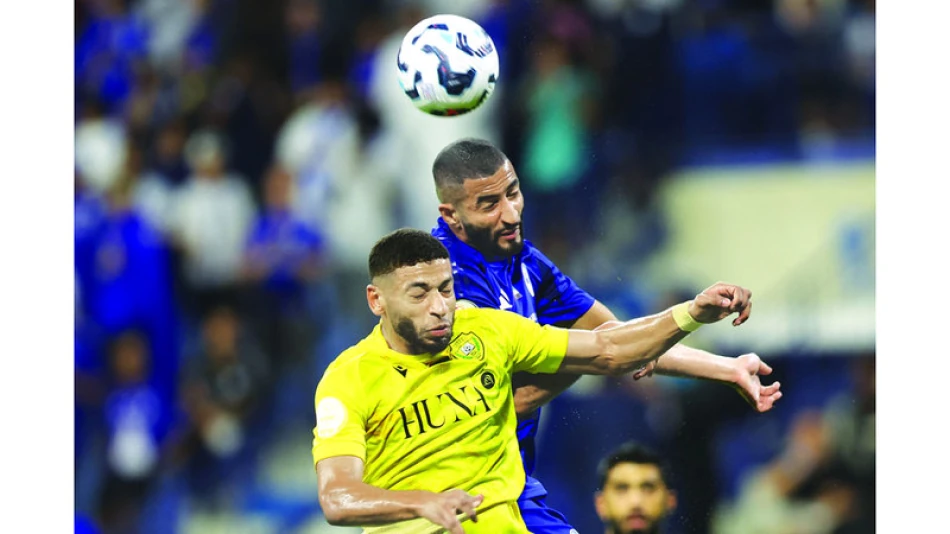
Flexible League Proposal Shields Players and Fans from Scorching Heat
UAE Sports Medicine Chief Proposes Climate-Adaptive Football League to Combat Extreme Heat
The UAE is pioneering a groundbreaking approach to professional football scheduling that could reshape how leagues worldwide handle extreme weather conditions. Dr. Abdullah Al Rahoumi, head of the UAE Sports Medicine Association, has proposed implementing flexible match timings for the 2025-2026 season starting August 16, allowing real-time adjustments based on weather conditions to protect players, staff, and fans from dangerous heat exposure.
A Temporary Trial with Permanent Implications
Al Rahoumi's proposal isn't a wholesale restructuring of the football calendar, but rather a strategic pilot program focused on the most challenging summer months. The system would grant competition committees authority to delay match kickoffs by one to two hours based on actual meteorological data, creating safer playing conditions when temperatures soar.
"We're not seeking comprehensive change, but rather creating space for intelligent decisions based on real weather data," Al Rahoumi explained. The approach represents a pragmatic solution that acknowledges the Gulf region's climatic realities while maintaining competitive integrity.
Medical Risks Drive Innovation
The medical justification is compelling. Playing in extreme heat can trigger muscle injuries, heat exhaustion, and potentially life-threatening heat stroke. These aren't just player welfare concerns—they represent significant financial risks for clubs facing extended player absences and medical costs, ultimately affecting competitive performance and attendance revenues.
Global Context: FIFA's Heat Management Evolution
The UAE's proposal aligns with broader international trends in sports heat management. FIFA's recent experiences at the Club World Cup in the United States forced a comprehensive review of safety protocols, with extreme temperatures highlighting the urgent need for adaptive measures.
For the 2026 World Cup, FIFA is implementing dramatic changes: extending halftime breaks to 20 minutes, mandating water breaks every 15 minutes, and shifting matches to nighttime schedules. These precedents validate the UAE's proactive approach and suggest similar measures may become standard across global football.
Regional Leadership Opportunity
If successfully implemented, the UAE's flexible scheduling model could establish a regional template for Gulf and Asian leagues facing similar climatic challenges. This positions the Emirates as a pioneer in climate-adaptive sports management, potentially influencing policy across multiple confederations.
Economic and Strategic Considerations
The proposal addresses multiple stakeholder concerns simultaneously. For broadcasters and sponsors, flexible scheduling maintains audience engagement by ensuring comfortable viewing conditions. Clubs benefit from reduced medical expenses and improved player availability, while fans enjoy safer, more comfortable match experiences.
The timing is particularly strategic, as global sports organizations increasingly prioritize athlete welfare and sustainable practices. Early adoption of climate-adaptive measures could enhance the UAE's reputation as a forward-thinking sports destination, supporting broader economic diversification goals.
Implementation Framework
The UAE Sports Medicine Association has committed to full collaboration with relevant authorities, including the Professional League and local clubs. This partnership approach ensures medical expertise directly informs scheduling decisions, creating a robust framework for real-time risk assessment.
Broader Implications for Global Sports
As climate change intensifies extreme weather events worldwide, the UAE's initiative represents more than regional adaptation—it's a proof of concept for climate-responsive sports management globally. Success here could accelerate similar implementations across multiple sports and regions.
The proposal's emphasis on data-driven decision-making and stakeholder collaboration offers a replicable model for other leagues grappling with environmental challenges. Rather than rigid calendar changes, the focus on operational flexibility provides a sustainable approach to evolving climatic conditions.
With FIFA already implementing similar measures for major tournaments, the UAE's domestic league experiment could provide valuable insights for international competition management, positioning the Emirates as a thought leader in sports innovation and athlete welfare.
Most Viewed News

 Sara Khaled
Sara Khaled






